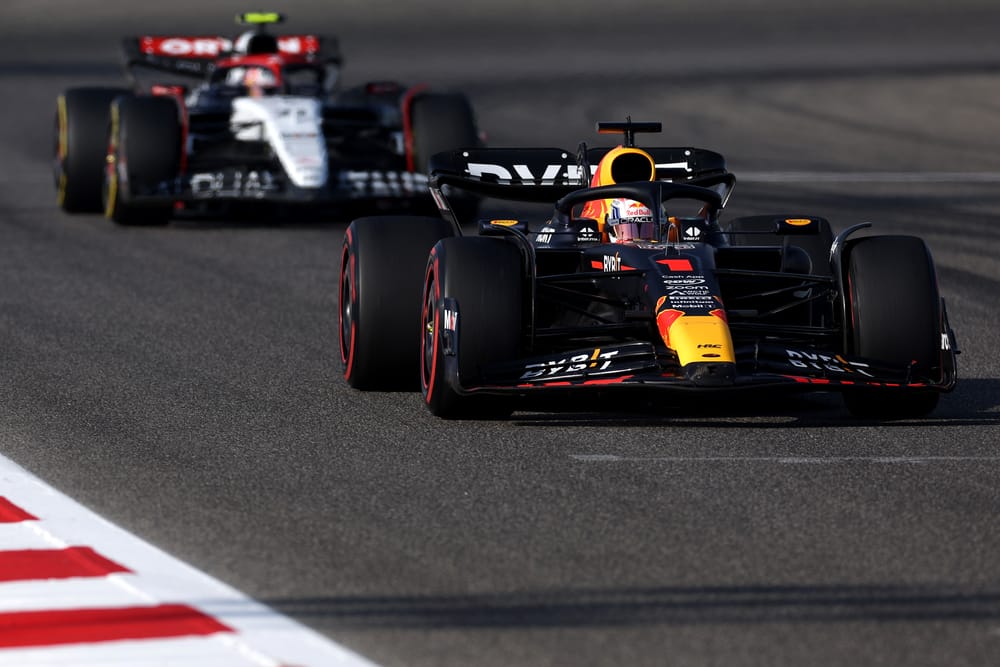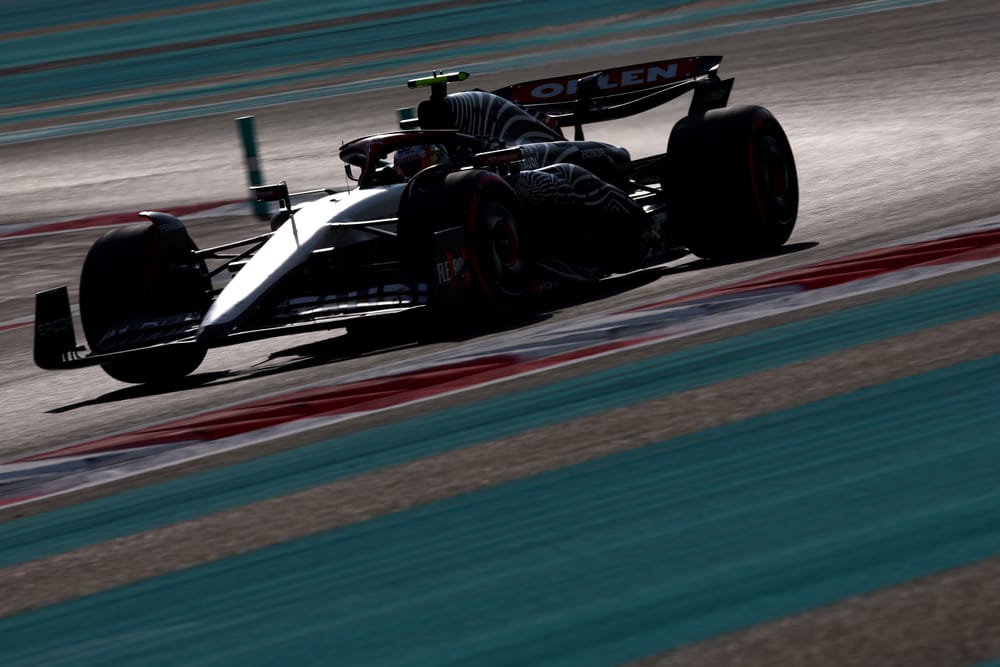Up Next

Formula 1 should encourage Red Bull to sell its second team as a consequence of introducing necessary measures to prevent common ownership of teams in the future.
This isn't because of recent criticism of Red Bull’s alliance with its second team, which will launch its first car under its new Visa Cash App RB banner in Las Vegas tonight, even though that has been a major talking point.
It's not really about that team at all. But there are more significant reasons beyond its existence that mean measures to prevent such situations are crucial to sporting integrity.
There is an easy way to tackle this immediately given we're in the early stages of negotiations of the 2026 Concorde Agreement that binds together the FIA, the teams and the commercial rights holder.
Part of those talks should be an agreement that outlaws any entity owning more than one team. Red Bull categorically should not be forced to sell, but there should be behind-the-scenes pressure to ensure it sells it to a suitable high-quality buyer for a good price. That's why the word 'encourage' is used, rather than 'coerce' or 'force'.
Many major sports have prohibitions on multiple ownership and when you have only 10 competitors, as F1 does, it’s particularly crucial to ensure that there are no conflicts of interest.
Not only does it eliminate the temptation to collude, but it also plays an important role in terms of perception.
Even before the days of widespread proliferation of conspiracy theories on social media, this was necessary, but now it’s vital. And with F1 on the crest of a wave in terms of interest and appeal, there’s no lack of entities interested in owning teams and therefore no reason to permit multiple ownership.
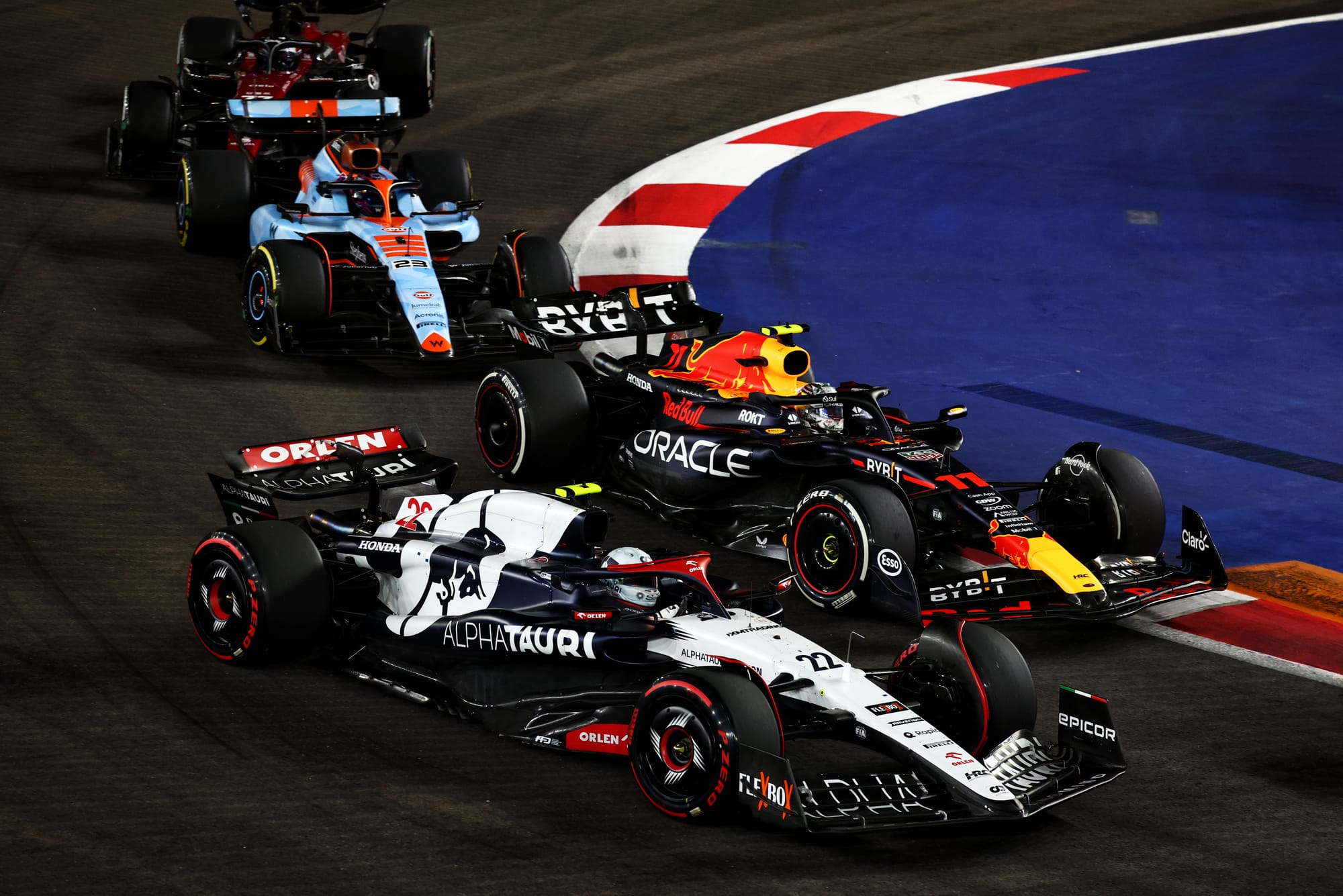
And this isn't just about the threat of an existing team buying another one, as far more pertinent is the possibility of an outside entity acquiring multiple teams, or multiple minority stakes in teams. Preventing that explicitly would eliminate any suspicions about the kinds of collusion that can do serious damage to F1.
The way this is outlawed in terms of the wording will have to be precise as, after all, it’s possible for connected entities to be distanced by complex networks of company ownership.
However, the general principle is an easy one to agree on and it shouldn’t be too difficult to create an approval process for anyone buying into a team to ensure the necessary scrutiny happens. And F1 will be all the better for it.
This argument isn’t an attack on Red Bull. In fact, its ownership of what’s now officially called Visa Cash App RB would have to be ‘grandfathered’ so that it is exempt given it’s a pre-existing arrangement, one that has always been entirely legal.
The FIA and Bernie Ecclestone begged Dietrich Mateschitz to save the ailing Minardi team so Red Bull effectively did F1 a favour by acquiring it. You can’t just pull the rug from under it, but that doesn’t stop F1 from tackling it.
However, if there are curbs on joint ownership included in the ’26 Concorde, it would be logical to bring some behind-the-scenes pressure to bear to encourage Red Bull to sell its second team even if it is rightly exempted – it just wouldn’t be fair for this to be overt or official.
If Red Bull can realise the value of its second team and a fair - perhaps even inflated - price agreed, then everyone’s a winner. And it's something F1 should actively be pushing for.
McLaren boss Zak Brown has been particularly vocal on this topic, which manifests itself in criticisms of what he calls “A/B team and co-ownership” situations.
McLaren #F1 CEO Zak Brown takes aim at Red Bull owning TWO F1 teams and says rules should be changed to prevent this in future.
— The Race (@wearetherace) December 22, 2023
Do you agree❓ pic.twitter.com/rS5jHgikmn
He’s not the only one, with multiple teams raising questions about the late-season AlphaTauri development progress and plans to move the second Red Bull operation’s UK design office to its Milton Keynes campus later this year.
“AlphaTauri is, from what I understand, moving to the UK, which I think will benefit both teams,” said Brown. “This A/B team and co-ownership, which is a whole other level of A/B team, is of big concern for the health of the sport, the fairness of the sport.
“When these [regulations] were put in place, the sport was in a different place. You had a huge gap between people like ourselves who had huge budgets and smaller teams, and now everybody's pretty much at the [cost] cap - so everyone's playing with the same size of bat, to use a baseball term.
“It might give someone an unfair advantage and I think that's something we need to tackle quickly.”
As Brown references, there’s more to this than simply the question of common ownership. That is an easy fix, but not one that solves all the problems, as concerns about A/B teams, team alliance etc would remain.
They are, however, crucial to the way several teams operate and therefore it’s a legitimate point of discussion for the future.
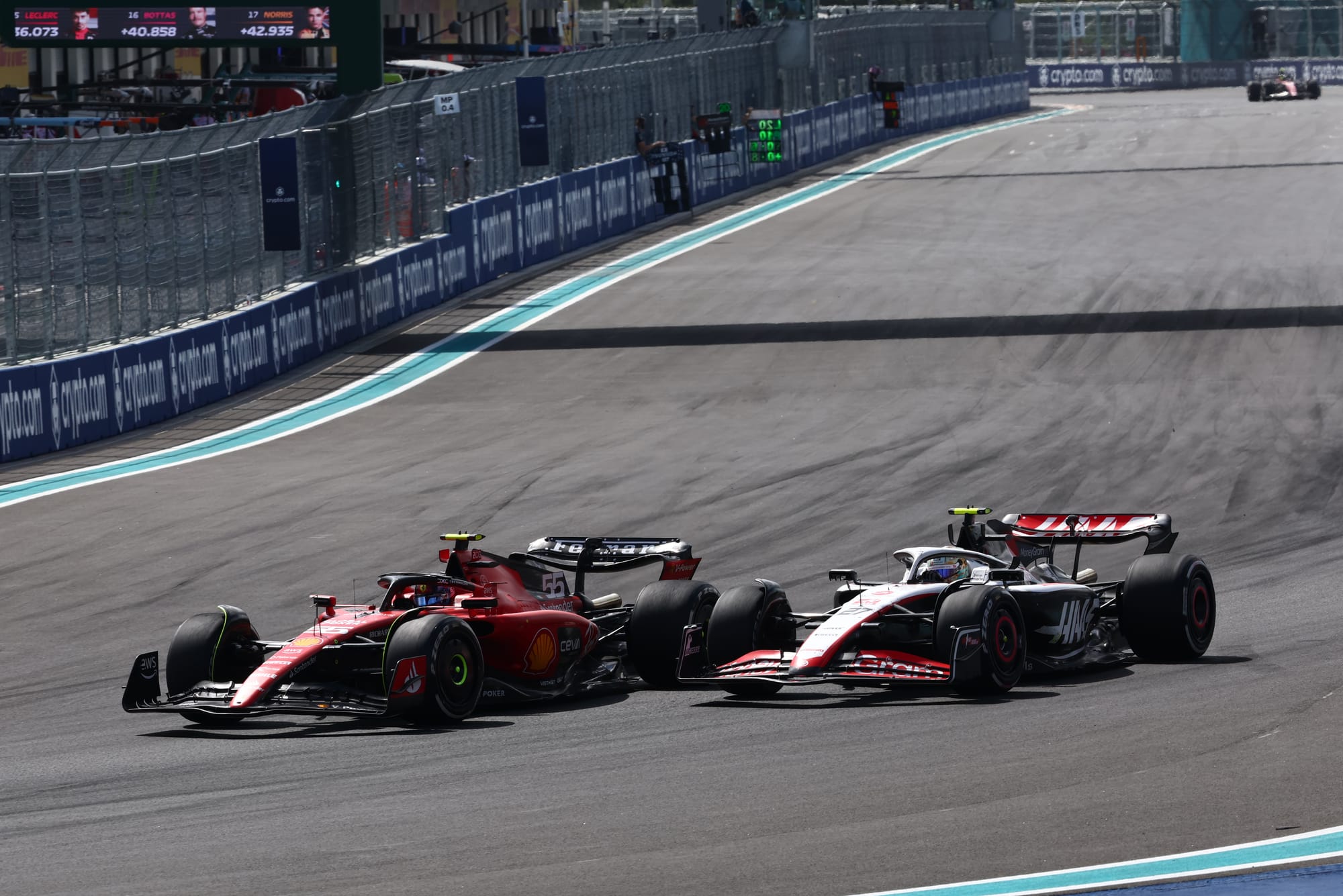
For example, a team dependent on a technical partnership, as Haas currently is, would have no chance of being given an extra F1 entry, therefore there’s a philosophical discussion to be had about whether F1 wants to continue with its listed team components regulations long-term that allow the supply of a wide array of mechanical components.
Regardless of that, the reference to the benefits to both teams is where things get contentious. As Mercedes technical director James Allison argues, the way competitors can and cannot work together is already precisely laid out in the regulations.
“Other than the very limited parts of the car, where you are permitted to supply parts and therefore, alongside a certain amount of technical data alongside those parts, in every other respect the rules are very tight about not passing on anything that could be regarded as intellectual property from one team to another,” said Allison when asked for his opinion on the alliance between the two Red Bull-owned teams.
“The way that rule is written is very broad and very powerful and it pretty much makes any sort of communication not permitted. So if two teams have a strong relationship with each other, it can only really be a strong commercial relationship, it cannot be a strong technical or a strong sporting relationship because the rules forbid that.
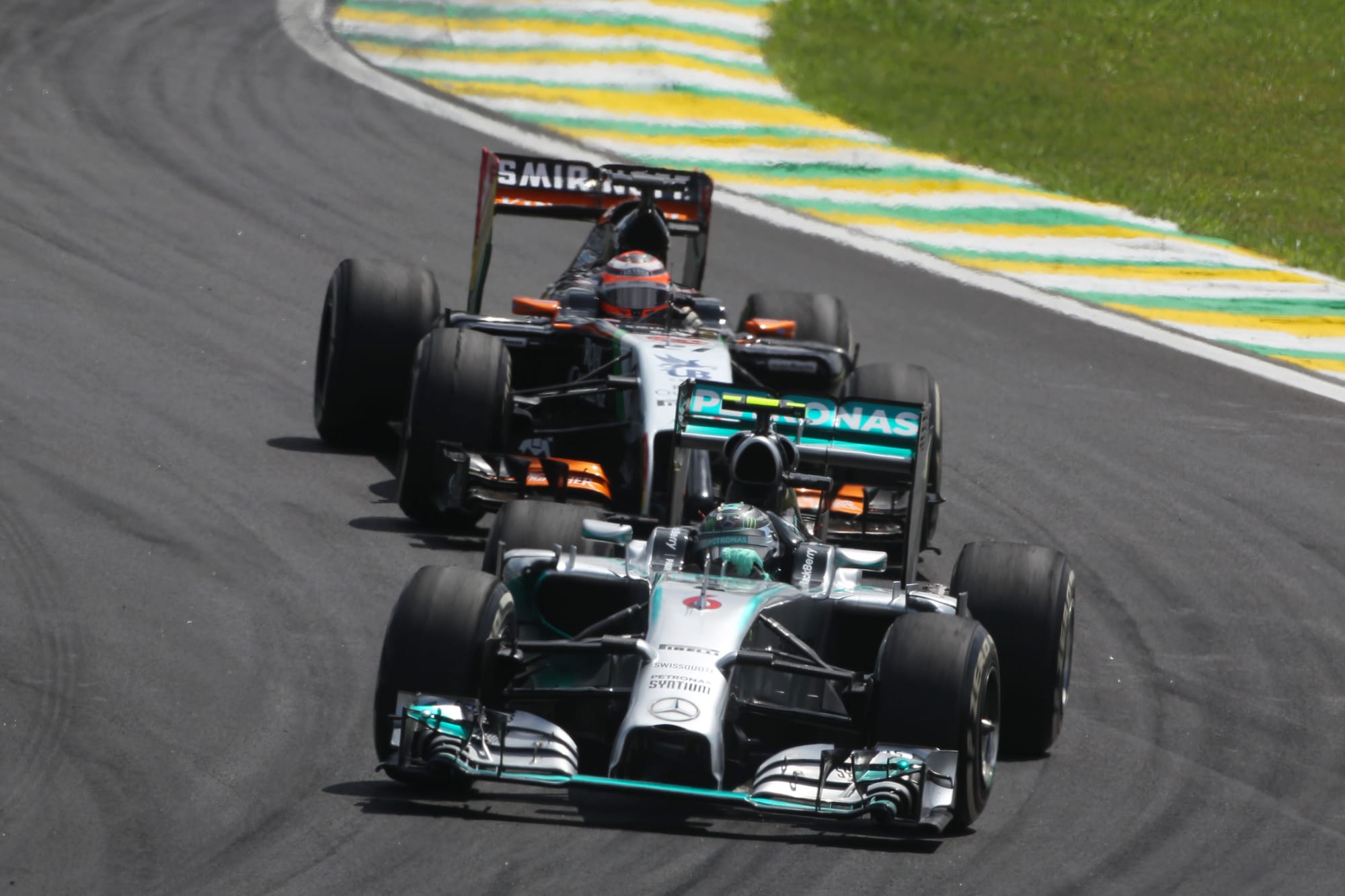
"In the past, it was more open and, in fact, the relationship that Mercedes enjoyed with the team that's now Aston Martin [Mercedes supplied gearboxes and hydraulic systems to Force India as well as engines], at the time, permitted much greater freedom than it does today. But in response to that relationship, the rules were altered substantially to mean that you can't really have a technical relationship or a sporting relationship.
“So if it turns out that there is one, that would be something that would cause unhappiness and therefore, in answer to your question, there’s not much mileage to seek a close relationship with another team from a technical point of view, because it's not allowed.”
The FIA scrutinises this closely, both in terms of what’s being done in the windtunnel and design work. Any suggestion Red Bull’s second team is simply running hand-me-down aerodynamic pieces or conducting clandestine design and development work for its big-brother team is wide of the mark and a lot of the criticism is motivated more by fear of what could be to come rather than what’s happened so far.
As Allison points out, it would be illegal, so for the more vocal critics there could be paranoia at play here, but it's reasonable to question whether there's a risk of a drip-feed of knowledge and ideas that is difficult to avoid if you have two teams that get too close even with the best of intentions.
That’s a wider philosophical discussion, but the easy part of the problem to solve is to prevent any entity from owning all or part of two teams.
That’s step one and it would be a mistake for F1 not to take the opportunity presented by the 2026 Concorde Agreement to do so. And this isn't actually about Red Bull, but ensuring sporting integrity is not undermined.

